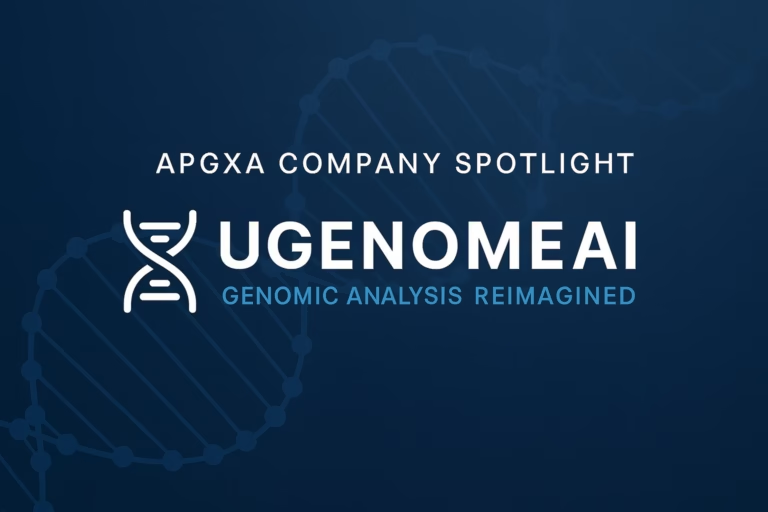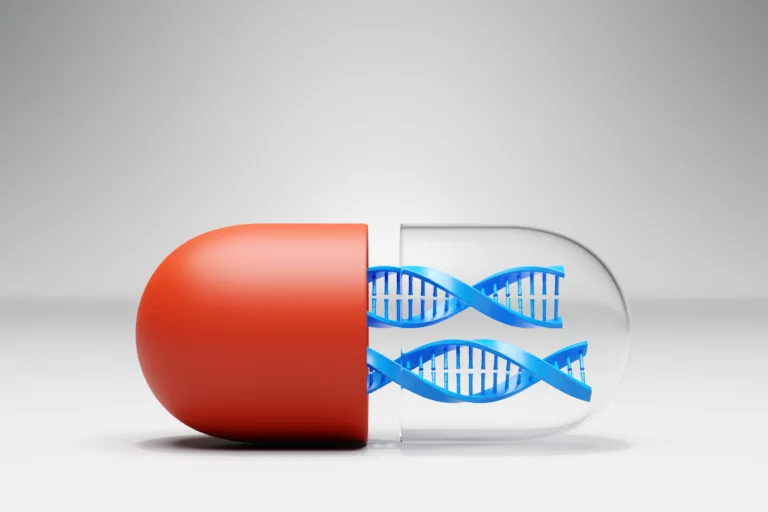Pharmacogenomics heralds a revolutionary shift in modern medicine, focusing on tailoring drug therapies to an individual’s genetic profile. This field is revolutionizing healthcare, moving beyond the traditional trial-and-error approach towards a more precise, personalized medicine strategy. By deciphering genetic variations, healthcare professionals can enhance drug selection and dosage, thus potentially reducing the need for trial-and-error and minimizing adverse drug reactions.
The notion of pharmacogenomics as a “silver bullet” reflects its potential to significantly improve treatment outcomes, a critical need in an era where healthcare costs have skyrocketed. For example, the median cost of cancer treatment at FDA approval in the 1990s was under $100 per month, but by 2011, it had surged to around $10,000 per month1. This underscores the pressing need for effective medication management in contemporary healthcare. Genetic testing has become crucial in identifying patient-specific drug responses, leading to improved health outcomes and more efficient resource utilization.
As healthcare continues to evolve, the integration of pharmacogenomics into clinical practice is becoming vital. Research in this area not only hastens drug development but also informs patient care decisions, benefiting both patients and clinicians. By leveraging pharmacogenomics, the future of medication management is poised to significantly enhance treatment compatibility and outcomes to enhance treatment compatibility and outcomes.

Understanding Pharmacogenomics and Its Relevance
Pharmacogenomics is a discipline that harmonizes pharmacology and genomics, examining how genetic variability shapes an individual’s response to pharmaceuticals. This field is pivotal for understanding pharmacogenomics, enabling healthcare professionals to customize treatments according to genetic profiles. Genetic assessments can predict whether a medication will be efficacious, induce adverse effects, or remain ineffective, underscoring the critical role of pharmacogenomics in contemporary medicine2.
Genetic disparities significantly impact drug efficacy by modulating drug receptors, tissue uptake, and metabolic pathways. For example, genetic variations in the STLO1B1 gene can affect the efficacy of simvastatin, a statin used for cholesterol reduction, potentially leading to muscle issues2. Pharmacogenomic evaluations of genes like CYP2D6 and CYP2C19 are crucial in determining the optimal dosages for medications such as amitriptyline, thereby reducing adverse reactions. This highlights the essential contribution of genetic testing in prescribing effective therapies.
Pharmacogenomics is currently applied to specific conditions including HIV, certain cancers, depression, and cardiovascular disease, showcasing its targeted application. Variants in pivotal genes significantly influence medication metabolism, affecting both efficacy and side effects. Understanding pharmacogenomics facilitates the selection of the most suitable treatments, leading to better patient outcomes and enhanced safety3.
The advantages of genetic testing for medications like statins or chemotherapy agents are evident, promising improved treatment safety and healthcare efficiency. Despite its growth, pharmacogenomics faces hurdles in accessibility and integration into everyday medical practice. Ongoing innovations in this field promise to forge more tailored medical interventions.
How Pharmacogenomics Can Transform Personalized Medicine
Pharmacogenomics is at the forefront of revolutionizing personalized medicine by aligning treatments with patients’ genetic profiles. This method not only boosts treatment efficacy but also reduces the incidence of adverse drug reactions. For instance, a detailed study in the Journal of Clinical Pharmacology demonstrated that pharmacogenetic insights could substantially enhance the management of drug response variability, showcasing a significant range from 1218 to 20 over the years of research4.
The fusion of pharmacogenomics with clinical data offers a more precise approach to treatment selection. By scrutinizing genetic variations, healthcare professionals can anticipate a patient’s reaction to specific medications, thus adjusting dosages with greater precision. The FDA’s increasing approvals of personalized treatments underscored by biomarker data highlight pharmacogenomics’ expanding role in tailoring therapy5.
The essence of pharmacogenomics in personalizing treatment lies in the creation of biomarker panels that amalgamate genetic, environmental, and personal factors. These innovations lead to more precise diagnoses and customized therapies, ultimately yielding superior patient outcomes. This underscores the imperative of sustained pharmacogenomics research and its potential for widespread clinical application, transforming medication management5.
The shift towards pharmacogenomic-directed therapy represents a pivotal advancement in medical care, underscoring the demand for comprehensive diagnostic tests that consider individual genetic profiles. The empirical evidence supporting this paradigm shift highlights its capacity to elevate healthcare outcomes, positioning it as a cornerstone in the future of personalized medicine4.
Impacts of Genetic Testing on Drug Response
The advent of genetic testing within pharmacogenomics has profoundly transformed our comprehension of drug efficacy. Genetic variations, notably in genes such as CYP450, significantly modulate individual responses to medications. This technology provides crucial insights into the optimal selection of drugs and dosages, thereby enhancing treatment efficacy and diminishing adverse effects.
Genetic influences are estimated to account for 20% to 40% of the variability in drug metabolism and response among individuals, underscoring the pivotal role of personalized medicine6. Moreover, adverse drug reactions are a leading cause of mortality in the United States, with approximately 100,000 fatalities annually, emphasizing the urgency of genetic testing6. By integrating these assessments, clinicians can anticipate patients’ responses to specific medications, thereby addressing the inherent variability in drug efficacy and safety.
Given the significant genetic variability in drug response, pharmacogenomics is indispensable for customizing therapies. For example, genetic polymorphisms in the CYP450 genes can affect the metabolism of up to 25% of medications6. Furthermore, genetic testing has been shown to decrease hospitalization risks by as much as 30%, highlighting its transformative potential in healthcare6.
The incorporation of genetic tests necessitates an understanding of specific single-nucleotide polymorphisms (SNPs), which constitute 90% of human genetic variation and are crucial in drug interactions6. By analyzing these genetic markers, healthcare providers can refine pharmacotherapy, leading to more effective and personalized interventions that significantly enhance patient outcomes.
Pharmacogenomics: The Future of Medication Management
The future of medication management is deeply intertwined with the evolution of pharmacogenomics, a discipline that delves into the intricate relationship between genetic makeup and drug efficacy. This burgeoning field empowers healthcare professionals to tailor drug prescriptions and dosages with precision, thereby significantly enhancing patient safety and therapeutic efficacy. Notably, a staggering 97% of individuals possess genetic variants that critically influence their metabolic response to medications7. Such insights underscore the imperative for personalized medicine, as they reveal that genetic predispositions underlie the variability in treatment outcomes, with 40% to 70% of patients exhibiting suboptimal responses to standard therapies7.
Adopting pharmacogenomics within clinical practice not only augments patient outcomes but also demonstrates fiscal prudence. The staggering figure of 30% of hospital admissions annually attributed to adverse drug reactions underscores the critical need for precision in medication administration7. Concurrently, the surge in FDA approvals for drugs with pharmacogenomic labels, from 10.3% in 2000 to 28.2% in 2020, heralds a paradigm shift towards evidence-based, genotype-informed medicine7.
Genomic data integration heralds a new era in personalized treatment protocols, enabling a more anticipatory approach to medication management. Notably, pharmacogenomics has been empirically linked to a 1.7-fold increase in the likelihood of achieving symptom remission in mood disorders, eclipsing traditional treatment modalities7. Educational initiatives, such as the Interprofessional Clinical Pharmacogenomics Certificate, are pivotal in equipping healthcare professionals with the requisite expertise to harness these advanced strategies effectively for enhanced patient care.
| Study/Statistic | Finding |
|---|---|
| Prevalence of genetic variants | 97% of individuals have variants affecting drug metabolism7 |
| FDA drug approvals | 28.2% of new drugs had pharmacogenomic labeling by 20207 |
| Patient response variability | 40%-70% do not respond adequately to drugs7 |
| Adverse drug reactions hospitalization | 30% of ADR hospitalizations are life-threatening7 |
| Symptom remission success | 1.7 times higher likelihood with pharmacogenomics7 |
The Role of Pharmacogenomics in Precision Medicine
Pharmacogenomics is playing a pivotal role in the evolution of precision medicine, a paradigm that tailors healthcare to individual genetic profiles. This integration of pharmacogenomic data empowers healthcare professionals to customize drug therapies, thereby optimizing patient outcomes and reducing adverse effects. Genetic profiling facilitates a more nuanced approach to patient care, aligning treatment strategies with specific genetic variations.
Research suggests that pharmacogenomics explains 20–95% of the variability in medication efficacy8. This variability results in a broad spectrum of treatment responses, from ineffectiveness to severe toxicity. Given that pharmacogenomic profiles exist for approximately half of all medications, their application can significantly improve treatment efficacy and diminish the risks of adverse drug reactions8.
A 2019 study by the Clinical Pharmacogenetics Implementation Consortium (CPIC) underscored the decade-long impact of pharmacogenomics on optimizing pharmacotherapy9. Ongoing research delves into genetic factors, such as CYP2C9 and VKORC1 polymorphisms, which influence medication sensitivity, particularly in cardiovascular therapies9.
The confluence of pharmacogenomics and precision medicine marks a significant shift towards personalized healthcare. By leveraging genetic insights, healthcare providers can make more informed decisions, thereby enhancing treatment outcomes and deepening our understanding of each patient’s unique biological makeup.
Exploring Gene-Drug Interactions
The exploration of gene-drug interactions is pivotal in the realm of pharmacogenomics, especially when it comes to the creation of tailored therapies. Studies reveal that drug-gene interactions manifest in 30-60% of patients within healthcare settings, highlighting the profound impact of genetic elements on drug efficacy10. Moreover, over 90% of individuals harbor at least one pharmacogenetic variant, which profoundly shapes therapeutic outcomes and the likelihood of adverse drug reactions11. For instance, the Clinical Pharmacogenetics Implementation Consortium (CPIC) has pinpointed 60 level A drugs that significantly benefit from genetic insights11.

Furthermore, among patients with potential prescribing encounters, roughly 4.7% possess genetic variants that interact with level A drugs, indicating a vast potential for enhancing drug efficacy through targeted approaches11. The adoption of multigene pharmacogenetic panels heralds a transformative shift, offering personalized therapies across all age groups based on individual genetic makeup11. As pharmacogenomics advances, the integration of these interactions into clinical practice will be crucial for refining medication regimens and ensuring safer, more effective patient care.
The Evolution of Pharmacogenetics in Modern Medicine
The evolution of pharmacogenetics has profoundly reshaped contemporary medical practices, evolving from initial genetic insights to the sophisticated realm of pharmacogenomics. Initially, pharmacogenetics concentrated on specific genetic variations affecting drug responses, offering crucial insights for predicting potential drug reactions and refining prescribing accuracy12. The discovery of single nucleotide polymorphisms (SNPs), which occur approximately once in every 1,000 base pairs within the human genome, has been pivotal13.
Advancements in pharmacogenomics have broadened the scope, analyzing the entire genome’s role in drug interactions. This holistic approach provides a comprehensive understanding of genetic influences on medication efficacy12. The identification of genetic markers has led to the creation of more personalized treatment strategies, optimizing therapeutic outcomes while reducing adverse effects14.
The convergence of pharmacogenetics and pharmacogenomics is pivotal in striving to improve patient outcomes through customized drug therapies. Pharmacogenetics elucidates how patients metabolize specific medications, whereas pharmacogenomics delves into the interactions between multiple genetic variants and their aggregate impact on drug efficacy12. This knowledge is particularly relevant, given that genetic drift, resulting from population bottlenecks, can affect the prevalence of certain genes involved in drug metabolism13.
Current research endeavors aim to pinpoint robust genetic predictors that could revolutionize clinical practices within the next decade. The ultimate objective is to seamlessly integrate these discoveries into everyday medical practice, enabling healthcare professionals to deliver safer and more effective treatments14.
Benefits of Pharmacogenomics for Patients and Clinicians
The integration of pharmacogenomics into healthcare significantly enhances patient care and informs clinician decisions. This cutting-edge approach allows for more tailored medication regimens, potentially improving therapeutic efficacy and minimizing adverse drug reactions (ADRs). It is estimated that approximately 11 million single nucleotide polymorphisms (SNPs) exist in the human population, with a substantial impact on individual drug responses and treatment effectiveness15. Data suggests that pharmacogenomic-supported treatments for mood and anxiety disorders lead to 40% fewer emergency room visits and a dramatic 58% reduction in inpatient hospitalizations16.
For clinicians, access to this genetic information enables them to make more accurate prescribing decisions. This results in a 1.7 times greater likelihood of achieving symptom remission, a factor that critically influences treatment protocols16. Furthermore, with the ability to predict patient response to various medications, clinicians can potentially decrease the annual cost of nonoptimized medication therapy, which has been estimated at around $528 billion USD16.
As the population ages, particularly with projections indicating that by 2050 the number of individuals aged 65 and over will double, the relevance of pharmacogenomics only intensifies17. The prevalence of multimorbidity in older adults, ranging from 55% to 98%, suggests that pharmacogenomics is vital for managing complex medication regimens effectively17. This capability not only enhances patient care but also supports healthcare systems in optimizing resources, ultimately leading to a higher quality of life for patients.
Challenges and Limitations in Implementing Pharmacogenomics
Pharmacogenomics holds the promise of tailoring healthcare to individual genetic profiles, yet its implementation encounters substantial hurdles. The cost of genetic testing stands as a formidable obstacle, dissuading healthcare professionals and patients from pursuing pharmacogenomic evaluations. Moreover, the provider awareness gap hampers the broad adoption of pharmacogenomics within clinical environments. The integration limitations of pharmacogenomic data into Electronic Health Records (EHRs) also pose a critical challenge, underscoring the necessity for seamless data exchange to support personalized medicine approaches.
The imperative for validated pharmacogenomic markers is paramount for the efficacy of such assessments. The US Food and Drug Administration (FDA) has endorsed pharmacogenomic testing for specific medications, yet numerous markers for gastrointestinal cancer therapy await validation and regulatory endorsement for widespread application18. Notably, the existing pharmacogenomic data are vast, yet a considerable segment lacks empirical validation in comprehensive studies18.
Ethical considerations regarding genetic privacy and data security complicate the implementation further. Direct-to-consumer (DTC) testing is available, but its clinical relevance and regulatory oversight are uncertain, rendering it unreliable for healthcare professionals19. To overcome the implementation limitations, the development of comprehensive dosing algorithms that integrate genetic information is imperative, as the absence of such frameworks obstructs clinical acceptance20.
Progress in pharmacogenomics necessitates collaboration among researchers, healthcare providers, and policymakers. This synergy can facilitate access to validated assays and dosing algorithms, thereby facilitating the integration of pharmacogenomic data into clinical practice and improving patient outcomes.
Case Studies: Success Stories of Pharmacogenomics in Action
Pharmacogenomics case studies underscore its profound impact on clinical practices, especially within oncology. For example, certain instances reveal how genetic profiling facilitates personalized medicine approaches. These strategies not only improve treatment efficacy but also significantly reduce hospitalization rates, underscoring the efficacy of pharmacogenetics in practical applications21. Moreover, cardiovascular treatment success stories highlight how pharmacogenomic testing informs more effective medication regimens. This approach enhances patient adherence and diminishes adverse drug reactions, showcasing the field’s potential22.
These narratives underscore the transformative potential of pharmacogenomics by enabling informed decisions based on individual genetic profiles. As pharmaceutical entities and academic institutions increasingly embrace this strategic initiative, the validation of these studies underscores the imperative for pharmacogenomics’ broader integration into healthcare22. These milestones are setting the stage for a more personalized healthcare paradigm. Clinicians can now tailor treatments to patients’ unique genetic profiles, thereby significantly improving healthcare outcomes. For more great articles, reference our blog.
Source Links
- https://www.nature.com/articles/s41416-023-02502-9 – Unlocking hidden potential: advancements, approaches, and obstacles in repurposing drugs for cancer therapy – British Journal of Cancer
- https://www.cdc.gov/genomics-and-health/about/pharmacogenetics.html – Pharmacogenomics
- https://my.clevelandclinic.org/health/articles/pharmacogenomics – Pharmacogenomics
- https://www.ncbi.nlm.nih.gov/pmc/articles/PMC4442460/ – Pharmacogenetics, Pharmacogenomics and Ayurgenomics for Personalized Medicine: A Paradigm Shift
- https://pubmed.ncbi.nlm.nih.gov/36927888/ – Pharmacogenomics: Driving Personalized Medicine – PubMed
- https://www.ncbi.nlm.nih.gov/pmc/articles/PMC3828931/ – Role of Pharmacogenomic Biomarkers In Predicting and Improving Drug Response: Part 1: The Clinical Significance of Pharmacogenetic Variants
- https://www.rgare.com/knowledge-center/article/pharmacogenomics-the-future-of-precision-medicine – Pharmacogenomics: The Future of Precision Medicine
- https://www.dovepress.com/the-role-of-pharmacogenomics-studies-for-precision-medicine-among-ethi-peer-reviewed-fulltext-article-PGPM – The Role of Pharmacogenomics Studies for Precision Medicine Among Ethi | PGPM
- https://www.ncbi.nlm.nih.gov/pmc/articles/PMC7348959/ – Pharmacogenomics and Personalized Medicine
- https://pharmacy.umich.edu/about-college/news/category/research-news/study-explores-prevalence-drug-gene-interactions-offers-recommendations-implementing-pharmacogenetics-services – Study Explores Prevalence of Drug-Gene Interactions, Offers Recommendations for Implementing Pharmacogenetics Services
- https://news.vumc.org/2021/09/02/study-shows-gene-drug-interactions-are-common/ – Study shows gene-drug interactions are common – VUMC News
- https://www.plslab.com/blog/pharmacogenetics-vs-pharmacogenomics-insights – Pharmacogenetics vs Pharmacogenomics — Precision Life Sciences
- https://www.frontiersin.org/journals/veterinary-science/articles/10.3389/fvets.2019.00022/full – Frontiers | Translating Pharmacogenetics and Pharmacogenomics to the Clinic: Progress in Human and Veterinary Medicine
- https://www.sciencedirect.com/topics/medicine-and-dentistry/pharmacogenetics – Pharmacogenetics – an overview | ScienceDirect Topics
- https://www.ncbi.nlm.nih.gov/pmc/articles/PMC3299179/ – Pharmacogenomics: The Right Drug to the Right Person
- https://www.thermofisher.com/blog/clinical-conversations/health-benefits-and-economic-value-of-pharmacogenomics/ – The Health Benefits and Economic Value of Pharmacogenomics
- https://www.nature.com/articles/s41397-021-00260-6 – Pharmacogenetic interventions to improve outcomes in patients with multimorbidity or prescribed polypharmacy: a systematic review – The Pharmacogenomics Journal
- https://www.ncbi.nlm.nih.gov/pmc/articles/PMC2806804/ – Challenges of Incorporating Pharmacogenomics Into Clinical Practice
- https://www.ncbi.nlm.nih.gov/pmc/articles/PMC5006954/ – Pharmacogenomics: Challenges and Opportunities
- https://link.springer.com/article/10.1007/s00439-021-02282-3 – Current challenges and opportunities for pharmacogenomics: perspective of the Industry Pharmacogenomics Working Group (I-PWG) – Human Genetics
- https://www.ncbi.nlm.nih.gov/pmc/articles/PMC10357923/ – Engaging Students in Pharmacogenetics: Patient Case Studies Using the PharmGKB Website
- https://www.ncbi.nlm.nih.gov/pmc/articles/PMC3432217/ – The success of pharmacogenomics in moving genetic association studies from bench to bedside: study design and implementation of precision medicine in the post-GWAS era





